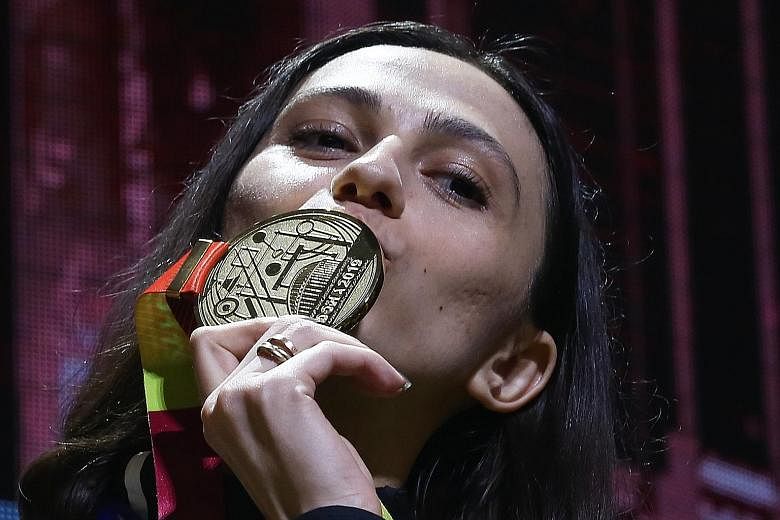MOSCOW • Despite another doping ban, many Russian athletes will still be competing at the next Olympics.
The sanctions handed down by the World Anti-Doping Agency (Wada) on Monday means there will not be a Russian flag or national anthem at a string of major sports competitions, including next year's Tokyo Olympics.
But there are enough loopholes for Russia to continue sending neutral teams to the events - and that is before the inevitable appeal to the Court of Arbitration for Sport, which could further water down the punishment.
Russian President Vladimir Putin confirmed as much on Monday night, saying that Wada's decision was "politicised".
He said: "Punishment cannot be of a collective nature and applies to people who have nothing to do with certain violations.
"Wada contradicts the Olympic charter and we have every reason to go to court."
Similar restrictions have been imposed before, though, and while much remains unclear about how Russians will compete, they will be present in Tokyo.
Three-time high-jump world champion Mariya Lasitskene, who missed the 2016 Rio Games owing to a blanket ban on the Russian track team, has confirmed her intention to take part this time round.
One of Russia's top athletes, she wrote on her Instagram page: "I've never had any plans to change my citizenship and I don't plan to do it now. I'm going to prove in my jumping that Russian athletes are alive, even in neutral status."
There are also many critics who believe Wada's decision was merely a slap on the wrist with Dmitry Svishchev, president of Russia's curling federation, telling Reuters it was "not a catastrophe" as they had gone through the same thing in 2016 at the Rio Games.
When asked about the Tokyo Games, Jonathan Taylor, the head of Wada's compliance review committee, insisted that "a team that goes there is not a representative of Russia". He added: "It is to send the message that Russia has forfeited its place at those Games."
However, Travis Tygart, the United States Anti-Doping Agency chief, feels the country has only been emboldened by previous sanctions for its doping violations and the four-year ban will do nothing to change its behaviour.
Calling it "yet another devastating blow to clean athletes", he said yesterday: "It has only become more egregious every time the global anti-doping community attempts to put a sanction in place.
"The question is - are we just going to stick our head in the sand and pretend this didn't occur and try to turn the page?"
At last year's Pyeongchang Winter Games, the International Olympic Committee was criticised for letting Russian athletes have uniforms in national colours and not neutral ones.
It was also slammed for allowing Russian officials to attend the event and for approving the "Olympic Athletes from Russia" name instead of being tagged as "Independent Olympic Athletes".
Although Wada president-elect Witold Banka has insisted that "going forward, they cannot use the name of the country in the name of the team", Tygart remains unconvinced , labelling the possibility of a full Russian delegation as "a complete charade and mockery".
His disappointment at the failure to impose a blanket ban was backed by advocacy group Global Athlete, which said Wada had been "played for fools" by the Russians.
A statement read: "Wada has robbed athletes worldwide of their right to clean sport due to their inability to enforce the strongest possible sanctions on Russia.
"Strong sanctions which would include a complete ban of Russia and its athletes at all international competitions including the Olympic and Paralympic Games."
ASSOCIATED PRESS, REUTERS

